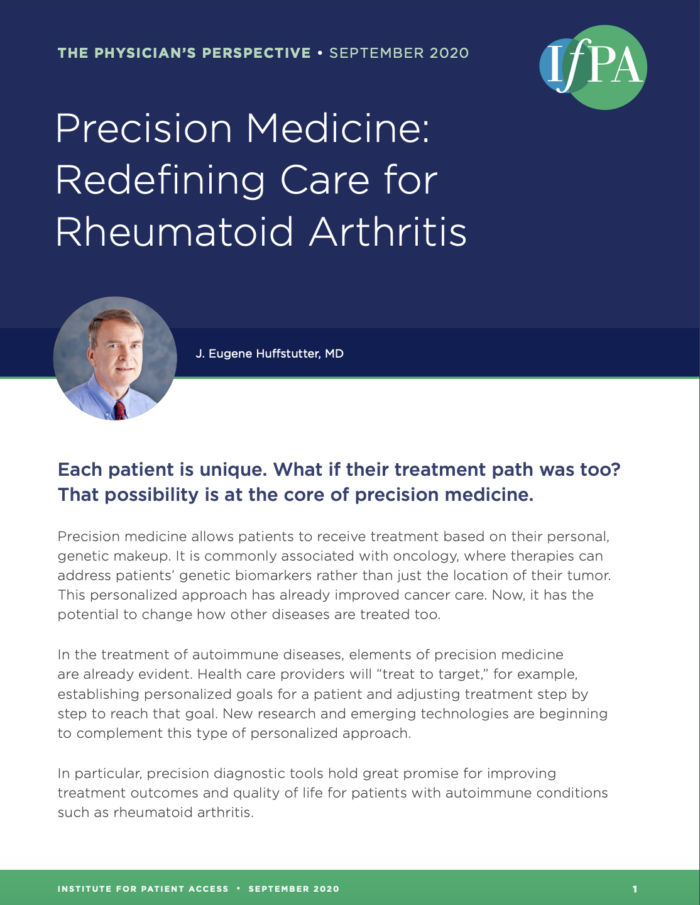New Paper Explores Precision Medicine for Rheumatoid Arthritis
September 29, 2020
Every patient experiences rheumatoid arthritis differently. So it makes sense that using what makes each patient unique – genetics – can help guide treatment.
J. Eugene Huffstutter, MD, explores the issue in “Precision Medicine: Redefining Care for Rheumatoid Arthritis.” As Dr. Huffstutter explains, one especially promising example of precision medicine is new diagnostic testing that can predict whether patients will respond to medications called an anti-TNFs. These biologics suppress the body’s response to tumor necrosis factor, or TNF, which causes inflammation. But the treatment is ineffective for up to two-thirds of patients.
Nevertheless, insurers may ask patients to try multiple anti-TNFs before moving on to a treatment that’s effective for them. The process is expensive, frustrating and “detrimental to patients’ health and wellbeing,” Dr. Huffstutter notes.
Precision diagnostic testing could limit this “try and see” approach. Using a blood sample, testing allows doctors to identify which patients are unlikely to response to anti-TNF medications.
Harnessing the power of precision medicine this way can help by:
- Shortening the time between diagnosis and effective treatment,
- Saving costs across the health care system, and
- Minimizing unnecessary doctor’s visits and lab work.
These benefits can be realized, however, only if insurers allow use of the new diagnostic test.
All too often the price of new technologies leads health plans to restrict coverage. But before insurers take that approach to diagnostic testing for rheumatoid arthritis treatment, the brief argues, “they might consider the tens of thousands of dollars they will save on multiple cycles of ineffective medications or related labs and appointments.”
To learn more about how precision medicine could personalize care and reduce the trial and error process faced by rheumatoid arthritis patients, read “Precision Medicine: Redefining Care for Rheumatoid Arthritis.”
Tags: Biologics, PainCategorized in: Blog


